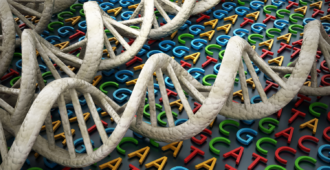Continuing the ‘gene hunting theme’ on from our last blog post on Project MinE, a recently published study has shed more light on the C9orf72 gene mutation.
The C9orf72 gene mutation is the most common cause of the rare inherited form of MND (about 40% of all people with inherited MND have this mutation). Some people with the sporadic form of MND also have this mutation, and it has been linked to the development of a type of dementia called frontotemporal dementia (FTD).
Figuring out the normal function of C9orf72
A study by Jacqueline O’Rourke and colleagues at Cedars-Sinai Medical Centre in Los Angeles used mice that lacked the equivalent gene to C9orf72.
When this gene was absent, the mice developed normally and their motor nerve cells were unaffected.
From this evidence they discounted one of theories about the C9orf72 mutation – that a change to the gene stops it working entirely and that this affects the health of motor neurons.
Instead they worked out that the absence of a normal C9orf72 gene causes cells in the immune system to change their shape and the jobs they do. This concurs with other theories about why motor neurons begin to die; that the cells recycling/waste disposal system is broken, and that some sort of neuroinflammatory response is involved.
Knowing more about what the gene is supposed to do in a healthy individuals will in turn help us understand how the C9orf72 mutation harms nerve cells.
More information:
C9orf72 is required for proper macrophage and microglial function in mice Jacqueline O’Rourke et al. (2016) Science 351: (6279) 1324-1329 doi: 10.1126/science.aaf1064 http://science.sciencemag.org/content/351/6279/1324.long
News story on the ALS Association website (18/03/2016)
C9orf72 research:
Read more blog posts on C9orf72 or read our ‘Research we Fund’ information sheet to see the C9orf72 projects our researchers are working on.
Inherited MND and FTD:
You can read more on our website and in our updated information sheets on inherited MND: overview of inherited MND and information on genetic testing and insurance
More information on frontotemporal dementia can be found on our blog and in care information sheet 9A





